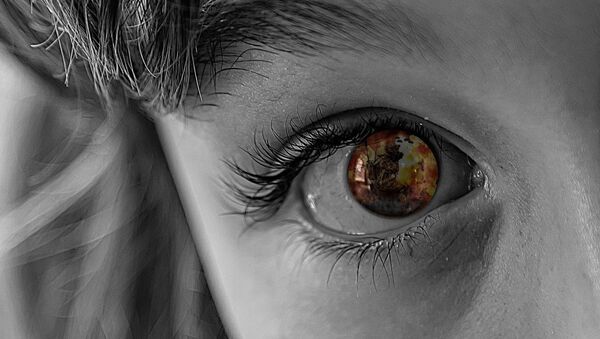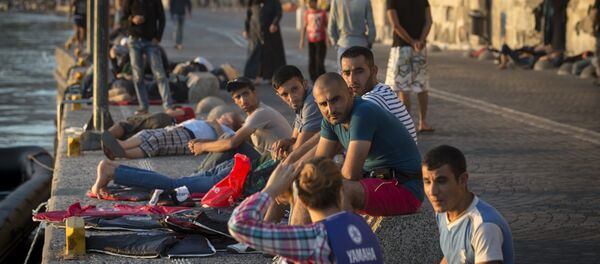Meanwhile, a new report from humanitarian organization, Human Rights Watch (HRW) offers an insight into the reality of the situation for refugee adults and children detained in Greece.
"Greek authorities regularly detain asylum-seeking and other migrant children, traveling on their own in small, crowded, and unsanitary police station cells," according to HRW.
"They are held there for weeks and months, waiting for space in shelter facilities."
HRW is calling for an immediate end to this practice and for Greek authorities to find space for unaccompanied children, "where they can receive, care, counseling, legal aid, and other basic services," its report states.
Observers from HRW spoke to 11 children, who had been detained for as long as two months. Despite being unable to examine the cells, the children described filthy, overcrowded and unsanitary conditions to the observers.
Babrak K, a 16-year-old boy from Afghanistan, told HRW that before being transferred to a station in northwest Greece, he spent five days in a police station in a windowless, rat-infested basement cell, into which food was thrown through a small slot in the door.
Unaccompanied kids deserve real care and protection--not detention. #Greece shld transfer them out of police cells. https://t.co/9qE34SZUtk
— Bassam Khawaja (@Bassam_Khawaja) July 20, 2016
"Police cells are no place for children who have fled their countries, endured perilous journeys, and are all alone in Greece," said Rebecca Riddell, Europe fellow at HRW.
"Locking vulnerable children in cramped and dirty cells for weeks or months is never an acceptable alternative for kids who need and deserve care and protection."
Greece is struggling to cope with around 50,000 refugees on its soil — and while refugee movement between countries remains restricted, attention has turned to the living conditions for the refugees inside the camp.
Appalling Conditions in #Greece's Refugee Camps is Contributing to Rising Xenophobia v @HRW https://t.co/Xy0eMiVlAh pic.twitter.com/WnnlIf3qsG
— Eva Cossé (@Eva_Cosse) July 15, 2016
However, it seems that it's not just HRW observers unable to view cells for themselves, Index on Censorship claims Greek and international press has faced "major difficulties in covering the crisis.
"It's clear that the government does not want the press to be present when a policeman assaults migrants," Marios Lolos, press photographer and head of the Union of Press Photographers of Greece told Index on Censorship.
"When the police are forced to suppress a revolt of the migrants, they don't want us to be there and take pictures."
European political interest may be waning, but interest from Greek and international press appears to be deliberately hampered, suggesting there could be another reason why the crisis keeps missing from the front pages.



